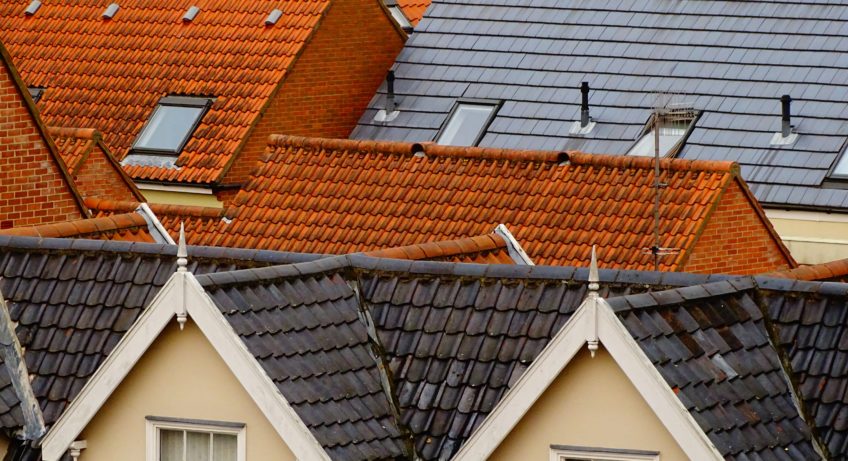Be it in terms of residential or commercial roofing, there’s a lot that goes into fixing roofs, replacing worn structures, and ensuring that there are no further leakages.
If you’re grappling with roofing woes at home, in your office, factory, warehouse, or any other commercial space, then it’s important to get in touch with a commercial roofing company, and if you’re in Virgina make sure to check out this insurance roof repair in Herndon, VA.
Here, we’ll be discussing the most popular types of commercial roofing, their benefits and affordability, and how you should go about the act easily.
Read on to get a fair idea about the different commercial roofing types.
Types of Commercial Roofing
Experts in commercial roofing have all the right tips and techniques in place to restore or replace roofs with technology-backed equipment. According to professionally-trained experts in the field of best Boise commercial roofing, the challenge lies in choosing the best commercial roofing system that can give long-lasting and effective returns.
Spray Polyurethane Foam – Commercial Roofing Solution
Spray Polyurethane Foam (SPF) is an effective and environment-friendly roofing alternative for industrial, commercial, and manufacturing facilities. SPF can be sprayed in liquid form. The liquid expands to form foam and creates a solidified layer on any existing roof. Even though SPF roofing is not among the most popular kind of roofing system, it has been around for quite a few decades now. Since the 1960s, industrial, residential, and commercial facilities have been using SPF roofing systems in all types of climates. An important feature of SPF roofing systems is their longevity. If installed and maintained properly, they are capable of lasting over 50 years.
Benefits of SPF roofing systems:
High energy efficiency – SPF is capable of delivering air, thermal, and childhood barriers for providing the best possible R-value per inch.
Durability – The material contained in the foam is capable of expanding and contracting along with the building structure on which it is applied. Highly durable and robust, this material decreases the possibilities of splits and cracks.
Waterproof and no leaks: SPF paves the ground for a continuous solid surface that has no seams or joints. It alleviates the concerns of the most vulnerable areas that are prone to leaking.
Environmentally Friendly – SPF commercial roofing requires minimal stripping of the existing roof. Thereby it eliminates the necessity for expensive wastage and tear-offs of the roof. Another plus to the credit of SPF roofing is that it’s very environment-friendly.
Single-Ply Membrane Installation of EPDM
Manufacturing, commercial, and industrial facilities have always treated Single-Ply Membrane as a proven and time-tested roofing alternative. Comprising of sheets of rubber as well as other different types of synthetics, it is possible to ballast and mechanically fasten single-ply membranes. They can be adhered with chemicals to the insulation to develop a protective layer for any commercial facility. There are several types of single-ply membrane roofing available in the marketplace. A good thing about these different types of single-ply membranes is that they are available in a varying range of prices to match all budgets.
Benefits of Single-Ply Membranes
Long-lasting
When single-ply membranes are installed and maintained by experienced commercial roofing companies, they can remain in good shape for up to three decades in a row.
A proven and good reputation
EPDM roofing has made its presence felt in the world of commercial flat roofing for years in a row. This, in turn, has led to several fields and laboratory studies being tracked, analyzed, and performed.
Favored insulation choice
As single-ply membranes in commercial roofing do not comprise of the insulation factor, EPDM provides for lucrative opportunities to insulate the roof of any facility.
High Fire-Rating
EPDM and TPO membranes provide Class A fire-resistance rating through the addition of fire-retardant chemicals in the course of the manufacturing process.
Retentive or Reflective
TPO is very reflective and generally white. On the other hand, EPDM is nicknamed “Black Roofs,” as its membrane is of natural dark color.
Metal Roofing
Metal Roofing, which ranks high on the list of the most prevalent commercial roofing systems, utilizes corrugated galvanized steel along with other types of materials like tin and aluminum. As the material used in metal roofing is light in weight in comparison to other materials, it is possible to install this roofing material directly on top of the current roof. Once the installation of the metal roofing is complete, protective layers can be added for the cause of waterproofing, rust and UV protection.
Benefits of Metal Roofing
Commercial metal roofing may last for 40 years or more if it’s installed and maintained properly.
Design
Metal roofing is available in a plethora of materials, designs, and colors. Because of its versatile nature, it’s possible to install metal roofs in all kinds of facilities.
Highly stable
Metal roofs hold themselves together very well. They are capable of withstanding snow and high winds and can sustain themselves through all weather conditions. Of course, any damage to a metal roof can be seen to by a company that offers metal roof repair in Sarasota, FL, or wherever you are based, but they are seen as very reliable!
Energy Efficiency
Sheet metal may be manufactured from recycled material to save on costs. Energy-efficient and eco-friendly, metal roofing is a good choice for budgeted projects.
Fire Resistance
Metal panels in commercial roofing don’t promulgate fire events. They are comparatively less prone to fire damages in comparison to other types of commercial roofing systems.
Shingle Roofing
Shingle roofing is generally applicable to residential roofing. However, this type of roofing solution is also popular with steep slope roofing applications in commercial facilities. These days, it is common to find shingles being manufactured from different kinds of materials including slate, metal, plastic, wood, ceramic, as well as composite materials of the likes of asphalt. Asphalt and architectural are the two main types of shingles that are popular in residential and commercial buildings.
Asphalt shingles
Asphalt shingles are cost-effective and commonly used shingles that are available in the marketplace for different applications. In most cases, these roof systems carry a warranty of 15-30 years on an average.
Architectural Shingles
Architectural shingles are heavier in weight and are multi-layered. They possess the benefits of weatherproofing and durability and can be used in different types of buildings to perfection. These shingles are long-lasting and very robust; in most cases, they feature “lifetime” warranties.
Benefits of Commercial Shingle Roofing
The main benefits of installing shingle roofing include high durability and a wide range of designs. Available in a multitude of designs and colors, shingles are usually class IV hail rated and very durable. An important feature of shingle roofing is that it’s easily repairable. The problems in this kind of roofing are easy to spot and take care of. Proper maintenance removes the fears of small damages. Companies with experience in repairing and restoring shingle roofing are adept at handling small and big problems alike. They have the right technology and the best solutions in hand to keep shingle roofing in top-notch order.
Tar and Gravel Commercial Roofing
Built-up roofs have been popular for more than 100 years in the U.S. alone. They are also known as “tar and gravel” roofs. These built-up roofing systems are generally installed by placing layers of tar or asphalt alternatively. Supporting fabrics are inserted into the roof directly to add more support to the layers. The number of pliers or layers that are to be installed can be chosen by the installers or facility owners as per need. The last layer of this kind of built-up roofing system comprises of gravel or stone.
Benefits of Built-Up Roofing
Built-up roof systems are waterproof and seamless. They offer ultra-violet protection and require minimal upkeep once they’re installed.
Way Forward
Commercial roofing companies have the best solutions in their bags for facilities of different kinds. It’s important to check out the advantages and features of various roofing types to get the best returns. Reach out to experts in the field of efficient and sustainable roofing systems for residential, commercial, manufacturing, municipal, and industrial buildings, today.

